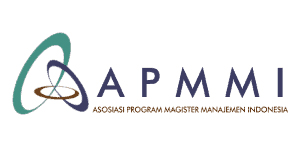Resilience and Diversity in Financial Economics: A Paradigm Shift towards Ecological Finance Theory
DOI:
https://doi.org/10.30996/jmm17.v11i1.10820Abstract
This research investigates the paradigm shift towards Ecological Finance Theory (EFT) and its implications for resilience and diversity within financial economics. Drawing on insights from ecology, sustainability science, and complexity theory, EFT proposes a holistic approach to understanding and managing financial systems in the context of global environmental challenges and socio-economic uncertainties. The study develops a conceptual framework for EFT, emphasizing resilience and diversity as central tenets in enhancing the sustainability and stability of financial ecosystems. Central to EFT is the recognition of the interconnectedness between financial systems and the natural environment. Resilience, defined as the ability to withstand and adapt to disturbances while maintaining essential functions and structures, emerges as a key principle in navigating uncertainties and mitigating systemic risks within financial markets. Moreover, diversity, encompassing a variety of market participants, financial instruments, investment strategies, and perspectives, is crucial for fostering innovation, inclusivity, and resilience within financial ecosystems. The research findings underscore the transformative potential of EFT in reshaping financial systems towards greater sustainability and resilience. By integrating ecological principles and sustainability criteria into financial decision-making processes, EFT offers a pathway towards building a more stable, inclusive, and sustainable financial future. As financial practitioners, policymakers, and researchers increasingly embrace this holistic approach, the vision of a resilient and sustainable financial system capable of navigating the complexities of the 21st century becomes increasingly attainable.
Downloads
Downloads
Published
How to Cite
Issue
Section
License
Authors who publish to JMM17: Jurnal Ilmu Ekonomi Dan Manajemen agree to the following terms:
- Authors transfer the copyright and grant the journal right of first publication with the work simultaneously licensed under a Creative Commons Attribution-ShareAlike 4.0 International License.. that allows others to share the work with an acknowledgement of the work's authorship and initial publication in this journal.
- Authors are able to enter into separate, additional contractual arrangements for the non-exclusive distribution of the journal's published version of the work (e.g., post it to an institutional repository or publish it in a book), with an acknowledgement of its initial publication in this journal.
- Authors are permitted and encouraged to post their work online (e.g., in institutional repositories or on their website) prior to and during the submission process, as it can lead to productive exchanges, as well as earlier and greater citation of published work (See The Effect of Open Access)












